Search
Did you mean: Nile?
Search Results
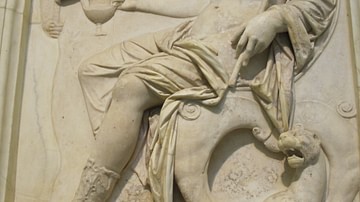
Definition
Bacchus
Bacchus was the god of wine and revelry in Roman mythology. Considered the most versatile and elusive of the gods, with a Greek equivalent in Dionysus, Bacchus is frequently associated with the Roman god of wine Liber Pater. He brought joy...

Article
Trade in the Roman World
Regional, inter-regional and international trade was a common feature of the Roman world. A mix of state control and a free market approach ensured goods produced in one location could be exported far and wide. Cereals, wine and olive oil...
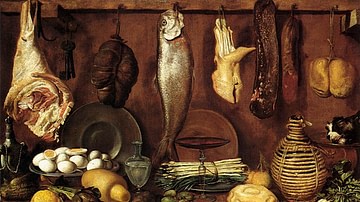
Article
Food & Drink in the Elizabethan Era
Food and drink in the Elizabethan era was remarkably diverse with much more meat and many more varieties of it being eaten by those who could afford it than is the case today. Storage of food was still a problem and so fresh produce was grown...
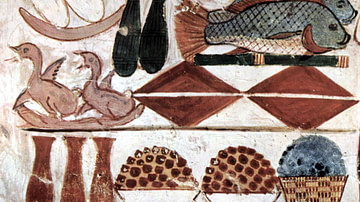
Article
Food & Drink in Ancient Egypt
Food and drink in ancient Egypt relied on barley and wheat, the primary crops cultivated along the Nile. The Egyptian diet was based on bread, beer, and vegetables. Meat was expensive and only rarely eaten. The majority of people ate fairly...
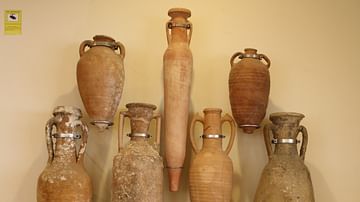
Definition
Amphora
An amphora (Greek: amphoreus) is a jar with two vertical handles used in antiquity for the storage and transportation of foodstuffs such as wine and olive oil. The name derives from the Greek amphi-phoreus meaning 'carried on both sides'...
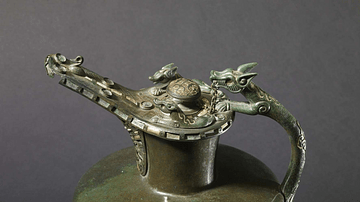
Article
Celtic Feasts
Feasts were an important part of ancient Celtic culture which marked important dates in the calendar and community successes. They were, too, an opportunity to display social status and, of course, eat and drink aplenty. Drunkenness and brawling...
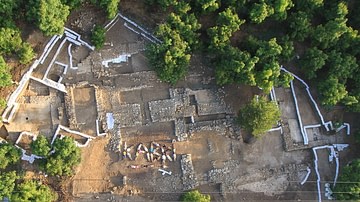
Article
Archaeological Excavations at Tel Kabri
Tel Kabri is an archaeological site in northwestern Israel that is best known as the location of one of the largest palaces in Canaan in the Middle Bronze Age or "MB" (ca. 2,000–1,500 BCE). Although Tel Kabri reached the height of its power...

Article
Norse-Viking Diet
In many depictions of Vikings, whether in film or other media, a group is often seen gathered around a flaming pit while an animal of some type – usually a boar – turns on a spit above. While the people of Scandinavia certainly ate meat...
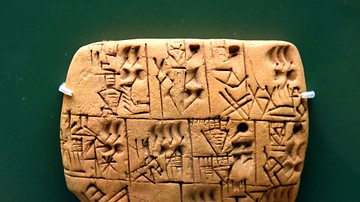
Article
Beer in the Ancient World
The intoxicant known in English as `beer' takes its name from the Latin `bibere' (by way of the German `bier') meaning `to drink' and the Spanish word for beer, cerveza' comes from the Latin word `cerevisia' for `of beer', giving some indication...
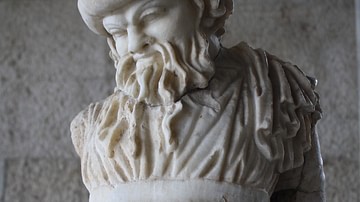
Definition
Silenus
Silenus (also spelt Silenos) is a rustic god of the forest, drunkenness and wine-making in Greek mythology. He is best known as the companion and foster father of the god Dionysos. Silenus is closely associated with the satyrs, sometimes...